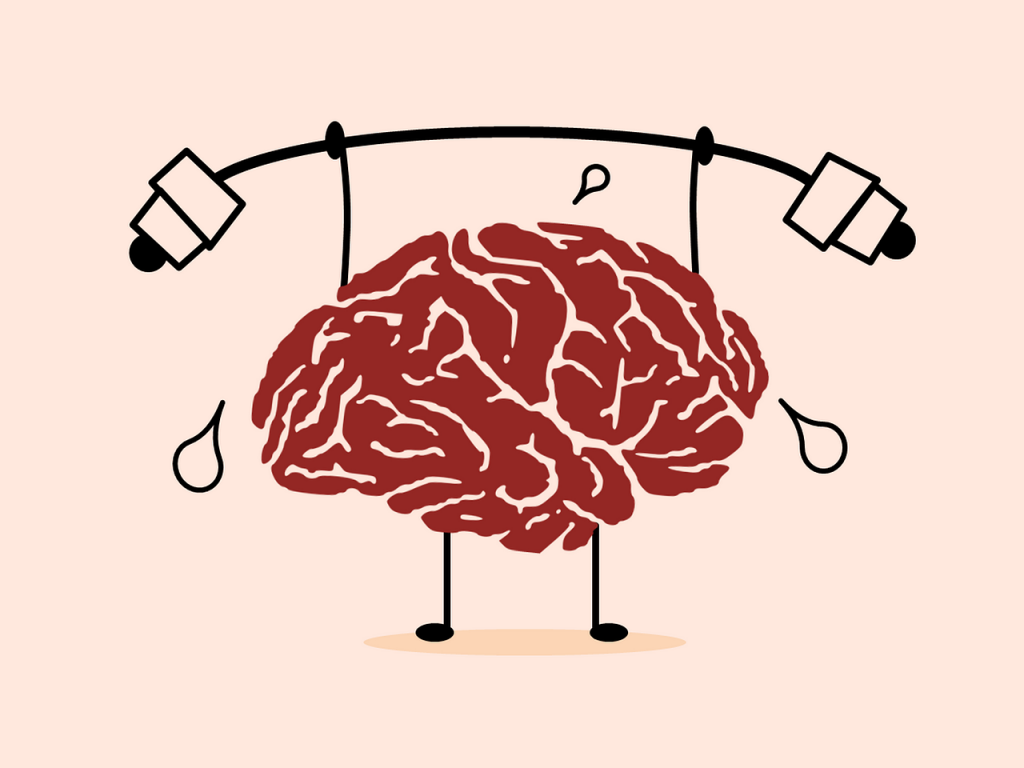Unlocking the Secrets of Phytochemicals: How Your Plate Holds the Key to Longevity
Let's explore how the vibrant colors and diverse flavors on your plate contribute to a longer, healthier life. Phytochemicals, the natural compounds found in plants, act as guardians for our health, promoting longevity through various pathways.
1. Phytochemicals: Nature's Protective Shield
Phytochemicals are bioactive compounds produced by plants. While not classified as essential nutrients, like vitamins or minerals, they provide numerous health benefits. Consider them as natural enhancers for your body. These compounds often work as antioxidants, neutralizing harmful free radicals that contribute to cellular damage and the aging process. Additionally, they possess anti-inflammatory properties, reducing the risks of chronic health conditions.
The power of phytochemicals lies in their ability to act as a protective shield, encasing the body's systems against the onset of diseases. For example, antioxidants found in colorful fruits and vegetables such as berries and leafy greens help safeguard cells from oxidative stress—a leading cause of premature aging and disease. Phytochemicals are more than just supportive catalysts; they can be pivotal in disease prevention.
2. Phytochemicals and Disease Prevention
Scientific research has consistently highlighted the potential of phytochemicals in both the prevention and management of certain diseases. For instance, specific phytochemical compounds have been found to target and inhibit malignant cell growth, especially concerning colorectal health. This is often due to their transformation by gut bacteria into active metabolites, which then influence cellular and genetic processes pivotal for health maintenance.
Diets rich in these compounds are highly recommended for their preventive capabilities. To proactively integrate these protective substances into daily meals, focus on a diet abundant in varied plant sources. Emphasizing a wide range of colors on your plate ensures a breadth of phytochemicals, bolstering the body's defense mechanisms.
3. Hemp Protein: A Phytochemical Powerhouse
Hemp protein serves as an excellent illustration of a nutrient-dense, plant-based food enriched with phytochemicals. Beyond being a robust source of protein, hemp contains essential amino acids, omega fatty acids, and a range of vitamins and minerals. These elements collectively support youthful skin by stimulating collagen production and protect hair health by supplying keratin building blocks. Furthermore, hemp's rich fiber content aids digestion, enhancing gut health.
By incorporating hemp protein into your dietary routine, you capitalize on its immunity-boosting properties due to its abundant micronutrients and omega fatty acids. It represents a valuable addition to any diet focused on longevity and wellness.
4. Turmeric and Brain Health
A staple in culinary traditions, turmeric is renowned for its vibrant color and the presence of curcumin, a potent compound with significant health benefits. Curcumin's antioxidant and anti-inflammatory properties are particularly beneficial for brain health, potentially protecting against age-related diseases like Alzheimer's by reducing brain inflammation.
It's critical, however, to use turmeric judiciously—consulting healthcare providers is advisable due to possible interactions with medications. Its role in supporting cognitive function highlights how simple dietary inclusions can have significant health impacts.
5. Innovative Delivery of Phytochemicals
The exploration of novel methods to deliver phytochemical benefits is a burgeoning research area. For instance, employing nanovesicles to transport compounds such as thymoquinone from black seed oil offers targeted delivery to combat oxidative stress and inflammation, underlying factors in aging disorders.
These advancements signal a commitment to maximizing the anti-inflammatory and antioxidant potentials of phytochemicals, integrating seamlessly into a lifestyle aimed at healthy aging.
6. A Plant-Rich Diet for a Sustainable Future
Embracing a plant-rich diet benefits both personal health and environmental sustainability. By prioritizing foods like whole grains, nuts, seeds, and an array of vegetables, you not only decrease chronic disease risk but also promote metabolic health.
A plant-focused consumption pattern offers a win-win scenario, enhancing both individual longevity and planetary well-being. Adopting such dietary habits aligns with a forward-thinking view of health, supporting a future where wellness and ecological health coexist.
Hydration, Coffee, and Simplicity: Daily Habits for a Longer Life
Living a fulfilling life doesn't necessitate complex routines or drastic measures. Often, simplicity and consistency form the backbone of longevity. Hydration, mindful consumption of coffee, and embracing simplicity can significantly impact health.
1. The Importance of Hydration
Staying hydrated is fundamental for various physiological functions, promoting vital processes from nutrient transport to waste elimination. Even mild dehydration can result in fatigue and reduced cognitive sharpness.
Prioritizing water intake is crucial. Keeping hydration accessible by carrying a water bottle and setting regular reminders can ensure consistent fluid consumption throughout the day. Consuming fruits and vegetables high in water content, like cucumbers and melons, complements water intake and adds nutritional value.
In addition to conventional drinks, herbal teas present an alternative way to boost hydration naturally, linking frequent water consumption to improved health and vitality. Listening to bodily cues is essential—hydration should become a part of self-care, readily adapting to climatic and activity changes.
2. Coffee: A Mindful Approach
Coffee, when consumed thoughtfully, offers numerous health benefits. Its antioxidant properties support physical performance and cognitive function. General recommendations advise moderation, with excessive intake linked to issues such as anxiety and insomnia.
Opting for quality coffee, controlling its strength, and understanding personal tolerance levels can maximize benefits while minimizing drawbacks. This includes adhering to a sensible limit of 3-4 cups and avoiding late afternoon consumption to preserve sleep patterns.
For those sensitive to caffeine, decaf options or herbal tea present alternative rituals. This mindful approach ensures enjoyment of the beverage's social and physiological benefits without disrupting health.
3. Embracing Simplicity
A simplified lifestyle reduces stress and enhances focus. Decluttering homes and minimizing commitments ease mental burdens, promoting tranquility and efficiency.
Creating calm and organized environments can be achieved through regular tidying. Similarly, saying no to obligations that diverge from core priorities simplifies daily pressures. It's also beneficial to value experiences over material possessions—engaging in meaningful activities fosters personal satisfaction and connection.
Focusing on simplification not only aids mental clarity but also harmonizes life, facilitating happiness and stress reduction, crucial factors in longevity and wellness.
The Power of Together: Building a Lifelong Community for Better Health
Aging vibrantly requires more than physical care; it necessitates deep-rooted, supportive social interactions. Community is a cornerstone of overall well-being, crucial for maintaining mental and emotional health as we age.
1. The Importance of Social Connections
The necessity of social connections extends across all life stages, offering emotional support, enhancing the sense of belonging, and promoting cognitive sharpness. A robust social network promotes longevity, decreasing the incidence of depression and chronic health issues.
Communities act as lifelines, communicating belonging and purpose while catering to fundamental mental health needs. Studies repeatedly confirm these intimate links between health and community, underscoring their mutual reinforcement.
2. How Community Engagement Boosts Health
Active participation in community-driven activities fosters physical and cognitive health. Physical activities, whether exercise classes or casual gatherings, sustain physicality and agility, while also staving off cognitive decline.
These interactions spark mental stimulation and enrich life with purpose, countering isolation with the shared joy of communal experiences. Involvement in any form—from volunteering to participating in social clubs—offers myriad advantages, contributing to an enriched, longer life.
3. Creating Opportunities for Connection
Building and maintaining connections require intentional efforts. Community centers and local programs offer varied activities designed to engage and benefit older adults. Intergenerational initiatives yield mutual benefits, fostering understanding and camaraderie across ages.
Peer-led wellness programs empower individuals, enhancing control over personal health while connecting with peers. Increasing availability of such programs reflects growing recognition of community’s pivotal role in health, enriching life in remarkably simple yet profound ways.
Q&A
-
What are Longevity Diets and how do they contribute to a longer life?
Longevity Diets are nutritional plans that emphasize whole, plant-based foods, minimal processed foods, and balanced nutrient intake. These diets contribute to a longer life by reducing the risk of chronic diseases, supporting heart health, and promoting a healthy weight. They often include foods like fruits, vegetables, whole grains, nuts, and healthy fats, which provide essential vitamins, antioxidants, and fiber that help maintain overall health and vitality.
-
How do Blue Zones Habits influence life expectancy?
Blue Zones Habits are lifestyle practices observed in regions where people have significantly longer life expectancies. These habits include eating plant-based diets, engaging in regular physical activity, maintaining strong family and community connections, and having a sense of purpose. By incorporating these habits, individuals can reduce stress, improve mental health, and decrease the risk of age-related diseases, thus potentially extending their lifespan.
-
What is the role of Moderate Exercise in promoting longevity?
Moderate Exercise, such as brisk walking, cycling, or swimming, plays a crucial role in promoting longevity by improving cardiovascular health, boosting immune function, and maintaining a healthy weight. It also helps in reducing the risk of chronic diseases such as diabetes, obesity, and hypertension. Regular moderate exercise enhances mental well-being by reducing stress and improving mood, contributing to a longer, healthier life.
-
How can Stress-Lowering Routines impact overall health and lifespan?
Stress-Lowering Routines, such as meditation, yoga, and deep-breathing exercises, can significantly impact overall health and lifespan by reducing cortisol levels and improving mental clarity. Chronic stress is linked to various health issues, including heart disease and depression. By managing stress effectively, individuals can improve their immune function, enhance sleep quality, and foster a positive outlook on life, all of which contribute to longevity.
-
Why is Community Engagement important for a long and healthy life?
Community Engagement is important for a long and healthy life because it provides a sense of belonging and purpose, which are crucial for mental and emotional well-being. Engaging with a community helps individuals form supportive relationships, share experiences, and stay active socially and physically. These interactions can reduce feelings of loneliness and isolation, lower the risk of mental health issues, and promote a longer, more fulfilling life.
-
What is the significance of Sleep Consistency in relation to longevity?
Sleep Consistency, meaning going to bed and waking up at the same time every day, is significant for longevity as it helps regulate the body's internal clock, improve sleep quality, and enhance cognitive function. Consistent sleep patterns can reduce the risk of sleep disorders, improve mood, and bolster immune health. By prioritizing regular sleep schedules, individuals can support their overall health and potentially extend their lifespan.








